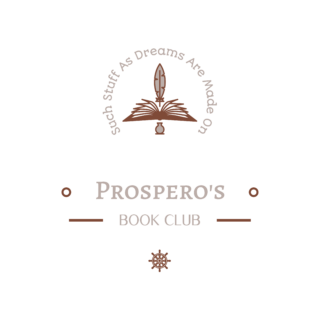Don’t ask me how I found this, but I’m glad I did. Somebody with a stronger constitution than I has done a satire of Jersey Shore in iambic pentameter. Unfortunately it stops just when it’s getting good (the author says in the comments that he was getting a headache, and I believe it). Maybe a surge in traffic (and some comments) will motivate him to grab the Excedrin and bang out a longer piece?
Month: August 2010
Best Ending Lines?
Ok, best opening lines was fun, now let’s do best ending. I don’t think I’ll stick with “ending line”, that might be a bit tricky to pull off. Might not always work as just a single line, in other words.
Here’s the rules :
- Must be the actual ending. Work backwards from the definite end of the play. You can take as much of the last scene as you want, but it has to include the actual end. So, in other words, I can’t have the big fight scene in Macbeth, I’d be restricted to Malcolm’s final speech, which isn’t nearly as interesting.
- “Best”, for the purposes of this game, has more to do with particularly memorable or poetic aspects of the actual words. Not because the scene was particularly cool.
Romeo and Juliet’s got a good contender with the Prince’s line, “For never was a story of more woe Than this of Juliet and her Romeo.”
Puck, of course, knocks it out of the park for Midsummer. His whole closing speech, from “If we shadows have offended” all the way through to “Robin shall restore amends” is note perfect.
I think this category is interesting because it brings up those opportunities where we think Shakespeare should have ended, but didn’t. The obvious case there being Hamlet, where “The rest is silence” has been the closing line for many a film version, but in the script Shakespeare has Horatio and Fortinbras go on for a few dozen more lines.
UPDATE: Did everybody see this? Digg.com picked up a story that Gunaxin did on 20 best closing lines – days after we decided to do it :). I wish I could figure out how to get some of that Digg traffic, I’m tellin ya!
There’s a few things I’ve learned in life: Always throw salt over your left shoulder, keep Rosemary by your garden gate, plant Lavender for good luck and fall in love whenever you can.

I feel bad about “Always throw salt over your left shoulder…” since somebody made a poster out of it (attributed to Shakespeare) and is selling it on Etsy. There are probably more than one; I just happened to have spotted one.
I can see where everybody went wrong. Google it.
The first hit (which for me is “The Herb Gardener”) lists it like this:
There’s a few things I’ve learned in life: always throw salt over your left shoulder, keep rosemary by your garden gate, plant lavender for good luck, and fall in love whenever you can.
Lavender and Shakespeare
(Winter’s Tale, iv. 4)
Aha, you think when you look quickly – that’s by Shakespeare! The Winter’s Tale! No, poor googler. Look closer at the rest of the page:
Lavender and Alice Hoffman
(Practical Magic )
There’s a few things I’ve learned in life: always throw salt over your left shoulder, keep rosemary by your garden gate, plant lavender for good luck, and fall in love whenever you can.
Lavender and Shakespeare
(Winter’s Tale, iv. 4)
Hot lavender, mints, savory, marjoram;
The marigold, that goes to bed wi’ th’ sun,
And with him rises weeping; these are flow’rs
Of middle summer, and I think they are given
To men of middle age.
This particular site provides the source line before the quote. So, yes, Shakespeare did speak of lavender in The Winter’s Tale – that whole bit about “Hot lavender, mints, savory, etc etc etc…” The quote above? That’s apparently from Alice Hoffman.
Unfortunately, all the other hits that attribute this quote to Shakespeare seem to associate it with The Winter’s Tale, so I wonder if they all came from the one I cite above.
Why Do We Always Throw Salt Over A Shoulder?
Ancient Rome: The Romans highly valued salt, using it for preserving food and as a currency. Spilling salt was seen as wasteful and unlucky. To counteract the bad luck, they would throw a pinch of the spilled salt over their left shoulder.
Christian Tradition: In Christian tradition, spilling salt was considered bad luck because Judas Iscariot, the apostle who betrayed Jesus, is depicted in Leonardo da Vinci’s “The Last Supper” knocking over a salt cellar. Throwing salt over the left shoulder was believed to blind the devil lurking there.
Medieval Europe: During the Middle Ages, salt was expensive and precious. Spilling it was considered an ill omen, potentially inviting evil spirits. Always throw salt over your left shoulder to protect yourself from these malevolent forces.
Superstition and Folklore: In various cultures, the idea persisted that spilling salt could bring bad luck or evil spirits. To negate this, people would always throw salt over their left shoulder as a protective measure.
So, always throw salt over your shoulder. Just don’t say Shakespeare told you to.
Explore more posts in the Not by Shakespeare category.
Hamlet’s Hit Points
I’m not quite sure what to do with this offering from a site called Game Playwright, which in itself seems highly cool to me:
In these pages, you’ll find definitions of nine critical story beats. You’ll read about the relationships between those beats. You’ll also find complete analyses of three stories you know already—Hamlet, Casablanca, and Dr. No—to show you how the system works.
Written with roleplayers in mind, Hamlet’s Hit Points is an indispensable tool for understanding stories, in games and everywhere else.
I’ve often brainstormed on the ideas of using Shakespeare’s characters as fodder for computer games of various sorts, so this fascinates me. In my version, computer AI has developed to a high enough degree that you could essentially “seed” your Hamlets and Ophelias and watch the play (the plot, at least) run through on its own sort of auto pilot. Then insert the player character and watch to see how he can disrupt the proceedings. This book looks like it’s geared toward game designers, but it seems like the sort of thing any random Shakespeare geek might be fascinated by. [ Spotted via Steve’s Gamer Blog ]
Wickedness and Vice, Money and Ale
Good article for catching up on what’s been found at the Shoreditch dig. Interesting finds so far include money boxes, lots of mugs, and parts of the wall and courtyard. http://www.independent.co.uk/news/uk/home-news/revealed-wickedness-and-vice-where-shakespeare-became-a-hit-2042595.html



















